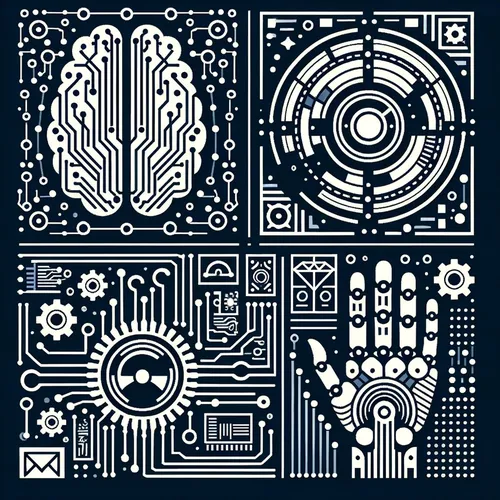AI & Robots: The New Power Couple Taking Over Tech!
- Author
- Quiet. Please
- Published
- Sat 12 Jul 2025
- Episode Link
- https://www.spreaker.com/episode/ai-robots-the-new-power-couple-taking-over-tech--66952987
This is you Emerging Technology Trends: AI, Robotics & Digital Innovation podcast.
Artificial intelligence is rewriting the rules of productivity and innovation across nearly every sector. The global robotics industry is surging, with market value expected to more than double from about seventy-one billion dollars in 2025 to over one hundred fifty billion by 2030, according to recent market analyses. This acceleration is fueled by the convergence of AI, robotics, digital twins, and Internet of Things technologies, producing smarter, more autonomous systems that are reshaping manufacturing, healthcare, logistics, and beyond. Robots embedded with AI now perform advanced data interpretation, real-time decision-making, and predictive maintenance, enabling not just efficiency but true adaptability. Enhanced human-robot collaboration is becoming the norm thanks to cobots, which feature intuitive interfaces, embedded safety, and the autonomy to learn new tasks without requiring complex programming—breaking down entry barriers for small and medium businesses.
Cross-industry innovations are evident: for instance, CES 2025 highlighted empathetic robotics for healthcare and AI-powered gadgets redefining smart homes, while automotive manufacturers are rolling out next-generation autonomous vehicles with real-time navigation and predictive systems. Meanwhile, tech leaders like Alphabet and Microsoft report that a growing share of their software code is now being generated by AI, accelerating internal development cycles and lowering operational costs. Investment patterns show a sharp uptick, with the advanced robotics market projected to reach nearly two hundred eighty billion dollars globally by 2034, reflecting annual growth rates above twenty percent. Venture capital is pouring into generative AI for robotics, industrial automation, and quantum computing research, promising new breakthroughs in machine reasoning and distributed intelligence.
Yet with this growth come regulatory and ethical challenges, particularly around safety, algorithmic bias, and intellectual property. Many tech firms are prioritizing transparency and responsible AI, while governments consider new frameworks to manage the integration of machine intelligence—especially as cyberattacks on AI and IoT systems rise. Practical action items for organizations include investing in scalable AI infrastructure, upskilling teams on human-machine collaboration, and conducting regular audits for algorithmic fairness and security. Looking forward, the fusion of AI, robotics, quantum computing, and blockchain will drive the next wave of digital business models—unlocking new efficiencies, but also demanding agile leadership and ongoing vigilance.
Thank you for tuning in. Be sure to come back next week for more insights into the technologies shaping our future. This has been a Quiet Please production. For more, check out Quiet Please Dot A I.
For more http://www.quietplease.ai
Get the best deals https://amzn.to/3ODvOta
